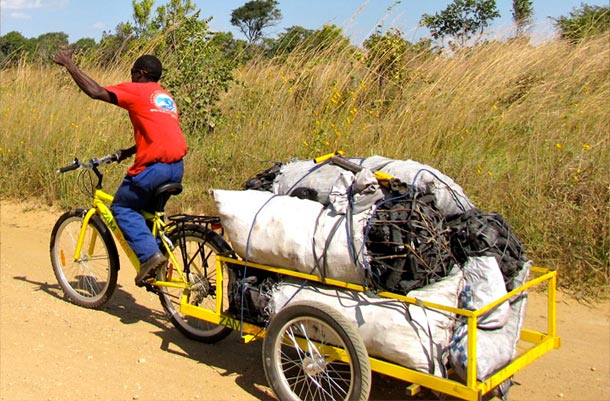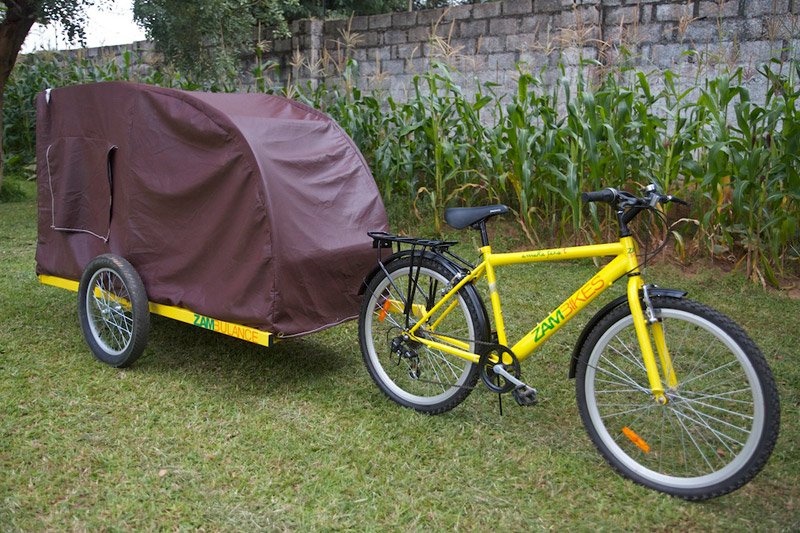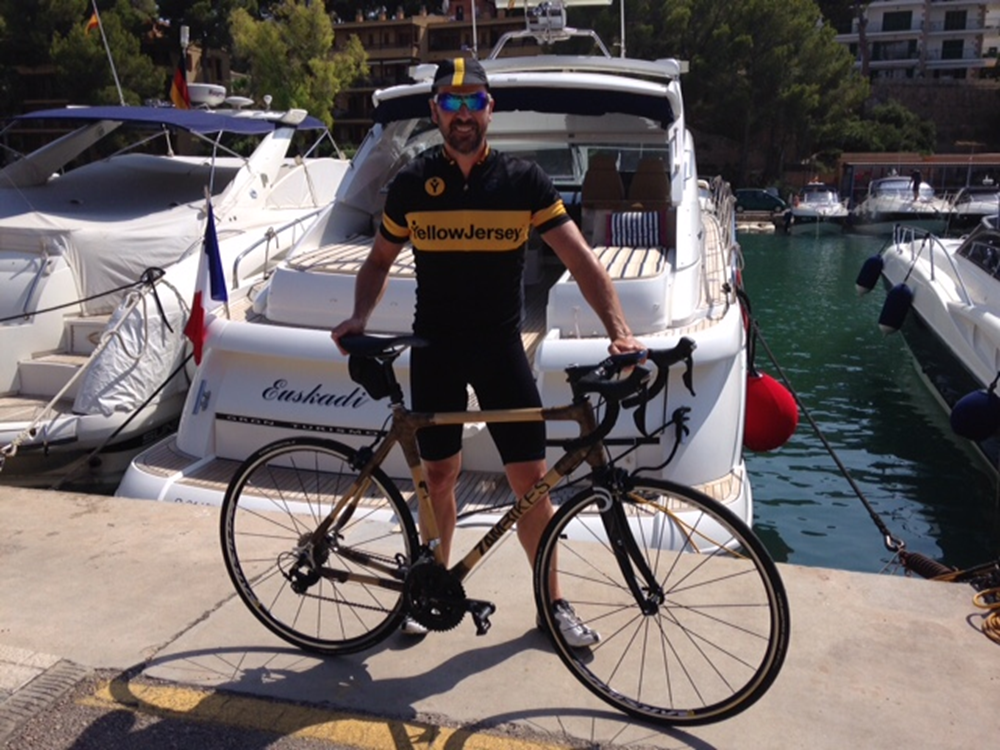Where the infrastructure just does not exist, a bicycle may be the sole means of reliable access to isolated communities. Compared to a van or car they are cheap to produce, maintain, and run. They provide both a tool to stimulate economic growth and a lifeline to remote communities. The developing world has been making huge gains over the past decade, and one of the major motivators for this is the bicycle. Nowhere is this more apparent than Sub Saharan Africa.

Zambikes have remained Zambia’s premier bicycle manufacturer since their formation in 2007, producing bicycles and accessories designed specifically for the needs and conditions of their domestic market. The Amaka Sana is their original six speed mountain bike, built to last with its robust steel frame and 26 inch mountain bike tires.
They are also available as a single speed, but think rural durability rather than urban hipster.
Twinned with the ZamCart, the two produce a reliable method for transporting goods to and from market, regardless of the terrain along the way. Where unmade roads deny access, and the cost of running a vehicle is prohibitive, Zambikes give remote agricultural workers the means to grow the income they make from agriculture.

A study by the Institute for Transportation and Development Policy measured the impact of bicycles to small communities in Africa. During their first quantitative field study, 300 poor households from different regions within Uganda were given subsidised bicycles, along with some guidance on how to make the best use of their saved time.
Across all of the households, they saw a time saving of 2 hours per day. All of the households enlarged the area of land they were using for agriculture, the bicycle allowing more frequent trips to market with larger loads, as well as giving access to new markets further afield. This ultimately resulted in an average increase in income from the sale of produce of 30-35%, together with a significant increase in time available for non agricultural activities including socialising.
The results demonstrated in Uganda are mirrored in communities around the developing world, with bicycles acting as a catalyst to growth in otherwise isolated communities. Zambikes contribute to this social change by providing low cost, locally produced bicycles which can be subsidised for poor communities. Together with their Zambulance, a trailer designed to transport patients over unmade roads, Zambikes are able to improve poor families’ access to medical centres otherwise too far, or too difficult to transport a patient to.
By manufacturing the bicycles and trailers domestically, they not only provide employment within the country and education for their staff, but also create a network by which the bicycles can be maintained and repaired.
While many charities exist importing used bicycles to developing nations, these come with a hodgepodge of parts and components not readily available when they need replacing. Zambikes are able to distribute their components centrally from within Zambia, as well as training a network of mechanics to keep the bikes in working order.
Zambikes has continued to expand having recently purchased 20 acres of land to construct their warehouse and community centre. However, this growth has been in despite of difficult circumstances for business within Zambia.
Large quantities of goods are imported into the country with their value tied to the US dollar, leading to very high lending rates. A business can borrow against the dollar but would expect to pay interest rates of 30-35%, leaving many squeezed for cash flow. Zambikes have used their ingenuity to increase their cash flow, allowing them to subsidise the steel bikes without relying on charitable donations.
Together with the steel frame mountain bikes and trailers, Zambikes have begun to produce handmade, bamboo bicycles for the export market, and not just for those with a social conscience.
While there is no doubt the bamboo bicycles are contributing to an incredibly worthwhile project, they are none the less something worth considering.

Riding in Mallorca this summer, Yellow Jersey’s Simon Lythgoe met up with the UK distributor, BOSbikes, who let him take one out for a spin. The properties of bamboo make it a fantastic frame building material, and with the 40 hours of work that goes into producing each bicycle, a fantastic ride. After an hour of experimenting Simon gave his endorsement, “I can’t imagine a comfier road bike. Under pressure on the hills, I could not feel any flex and it feels as stiff as any carbon bike I have ridden”.
The bamboo bicycles tap into the cyclists need for an N+1. Comparatively inexpensive, the bamboo bicycles provide a fantastic ride on a bike that’s going to stand out against the sea of carbon on your club run, or turn some heads on the singletrack at your local mountain bike trail.